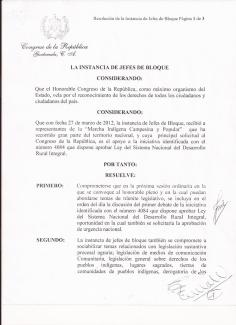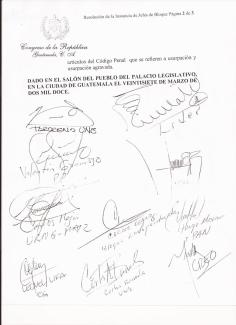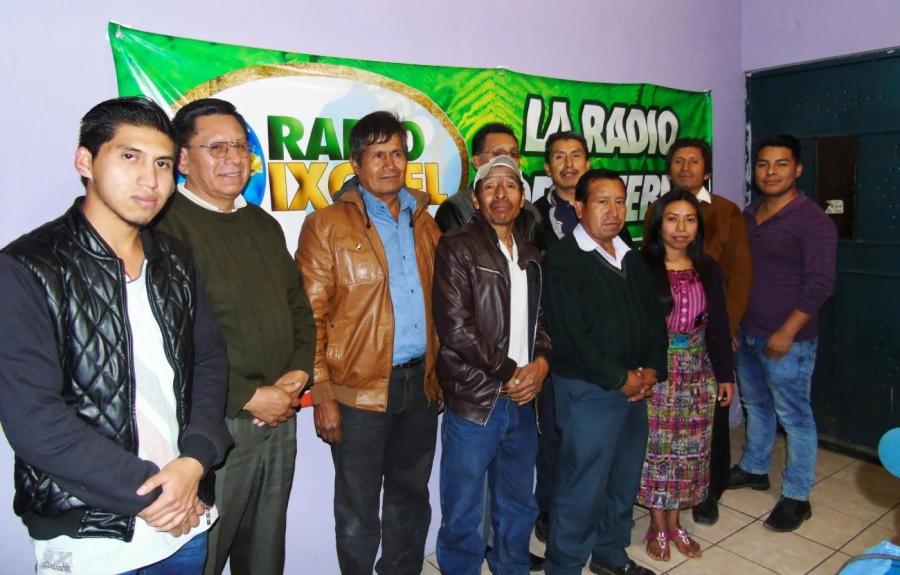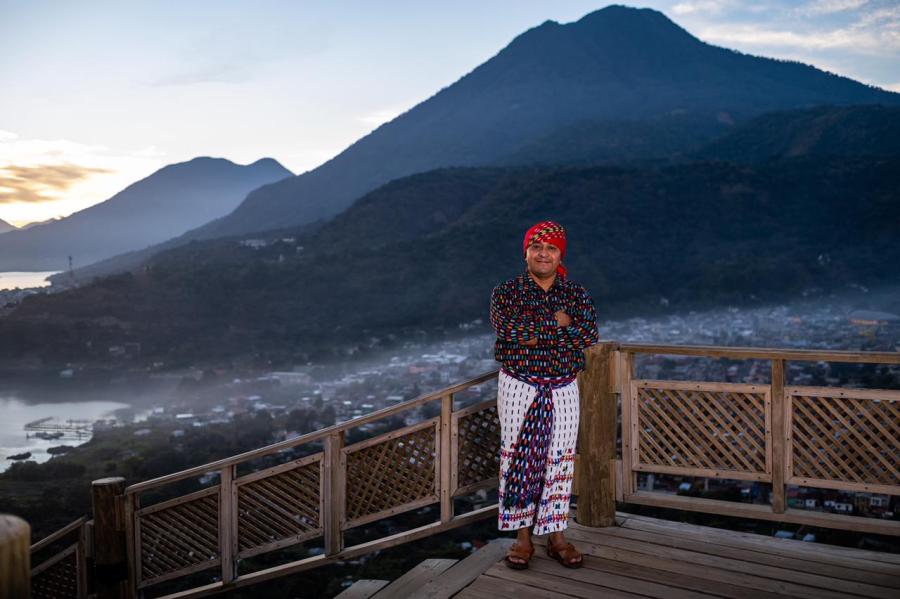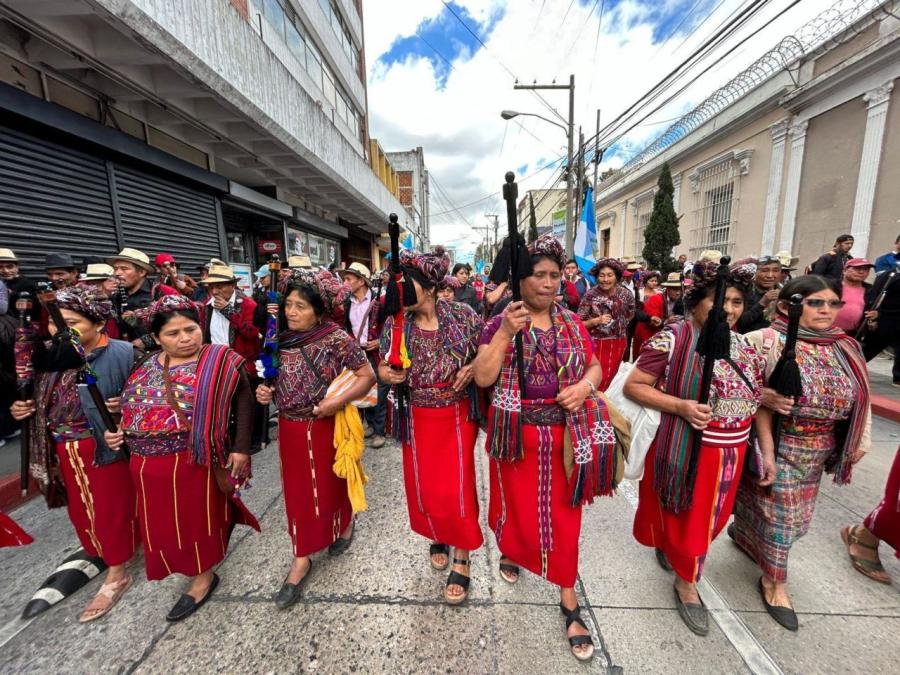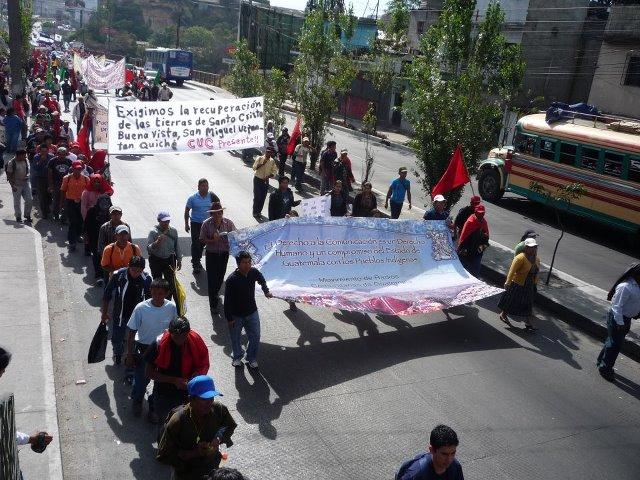
As a result of a more than a week of protests in Guatemala, the leaders of 11 different political parties in Congress signed resolution committing to "dialogue on concrete legislative actions" on pending legislation, including bills regarding 1) Rural Development, 2) Agriculture, 3) Community Media, 4) Indigenous Rights, 5) Sacred Sites, 6) Indigenous Community Lands
These are the pieces of legislation that the coalition of Guatemala Indigenous organizations including Cultural Survival have been advocating for over, especially in relation to the legalization of community radio.
Alberto Brunori, the UN High Commissioner for Human Rights in Guatemala, and the Alvaro Ramazzini, the Archbishop of San Marcos were present as witnesses of the resolution.
The Latin American Herald Tribune gave President Molina’s statement: “I understand your demands and the government is committed to respond to the ideas, because I have the political will and the willingness to do so, to respond to the reality in the rural area,” he said. The president designated the commissioner of rural development, Adrian Zapata, to lead a government commission that will deal with the demands of the marchers.
Organizers of the march, the CUC or Comite de Unidad Campesino are celebrating the resolution, as shown in the following statement on the movement’s Facebook page, translated from Spanish:
“The enormous force of the Indigenous, campesino, and popular march, the beating of so many hearts, and the steps we have taken with strength and conviction, have achieved an opening of doors, to hope of a future of life rather than death”
Daniel Pascual, leader of the CUC, commented “we didn’t achieve everything we demanded, but we have made a fundamental advance” reported La Hora in an interview with Pascual. Remaining skeptical, he commented, “We know that these are promises that often go unfulfilled, but we will be vigilant in following up these promises so that they become concrete.” A pending meeting was scheduled for April 19th to evaluate the advances of the government towards resolving the demands of the marchers.
According to Alberto 'Tino' Recinos, Coordinator of Citizen Participation for the Cultural Survival Community Radio Project, the resolution is a good step forward for the movement of community radios in Guatemala. " We see that the actions that civic and grassroots organizations are taking as a group are getting results. I'm optimistic that the bill to legalize community radio in Guatemala is moving forward," Recinos said in a statement. He expressed that in order for party leaders to follow up with their promises, their next steps should be to sit down in dialogue with Commercial Radio Trade Asociation.
